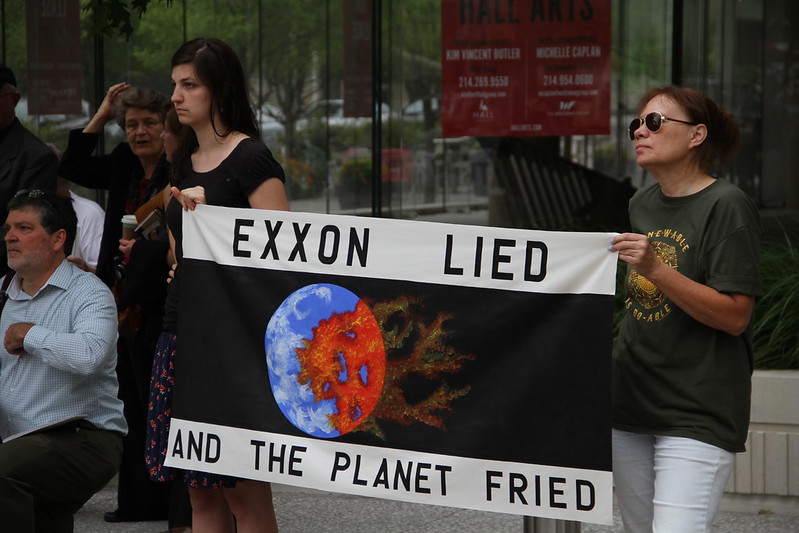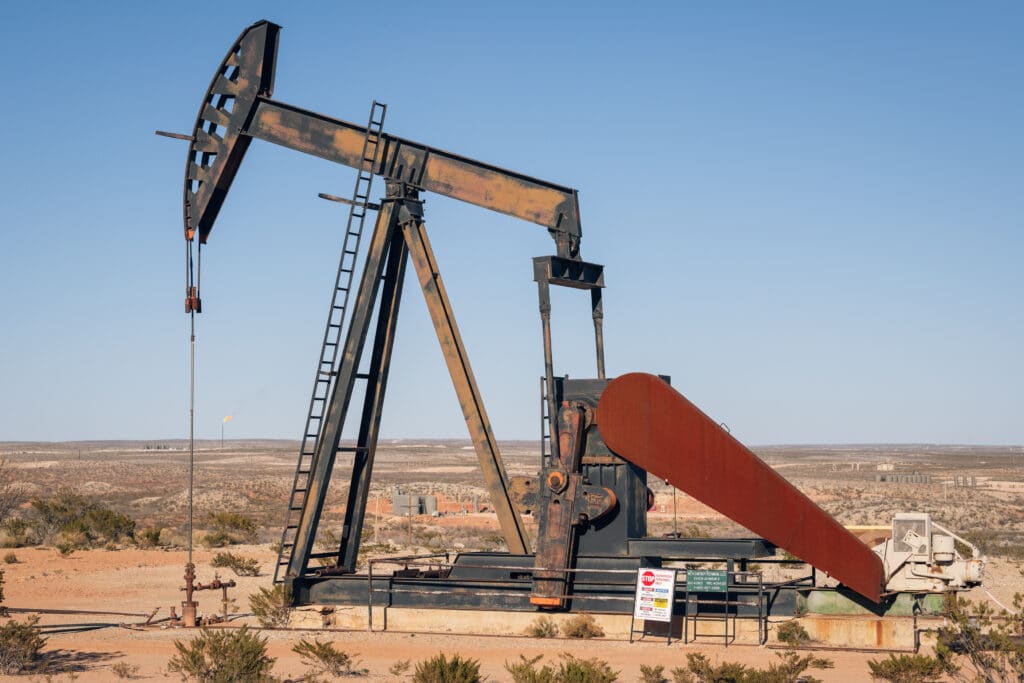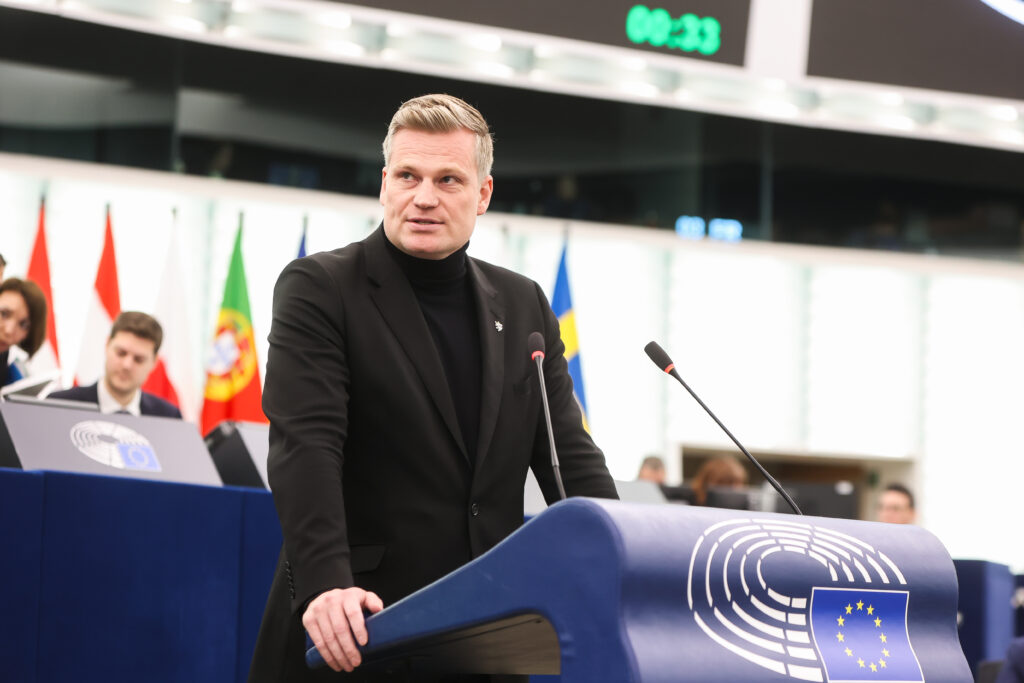As blistering wildfires and a monstrous hurricane fueled by rising temperatures ravage the U.S., Senate Democrats this week released their action plan for combating the climate crisis and building a clean energy economy.
But the report appears to have left out any reference to, much less a plan for, climate accountability — that is, holding polluters accountable for the harms they are knowingly causing in communities across the country facing extreme heat, devastating wildfires, and disastrous flooding and storms.
In the 200-plus page report, titled “The Case for Climate Action: Building a Clean Economy for the American People,” the Senate Democrats’ Special Committee on the Climate Crisis does outline comprehensive strategies to decarbonize the U.S. economy and does acknowledge both the substantial costs of damaging climate impacts and the role of the fossil fuel industry in gaming the political system to block climate policies.
But the fact that the new Senate Democrats’ climate report largely fails to address fossil fuel industry accountability is disappointing, says Natalie Mebane, associate director of U.S. policy for climate advocacy group 350.org.
“For me, the fact that these are some of the best Democratic senators coming together saying, ‘Let’s address this [climate] issue,’ if they aren’t addressing the elephant in the room, which is that these companies have caused this problem, covered it up, and have brought us to the place now where we’re in desperate times, then it’s like how serious can you really be?” Mebane said.
Over a dozen municipal governments plus the state of Rhode Island and a commercial fishing association have already sued major fossil fuel companies such as Chevron and ExxonMobil demanding the companies help pay for damaging impacts caused by burning fossil fuels. The premise of the lawsuits is that, given the industry not only knew early on about the climate consequences of their products but publicly denied these risks and blocked effective policy responses, the companies should be held liable for their deception in court.
The attorneys general of Massachusetts, Washington, D.C., and Minnesota have also brought lawsuits alleging that this deception violates consumer protection statutes.
“Exxon knew, all of [these fossil fuel companies] knew through the last 50 years. These companies not taking responsibility and lying about it for decades is the reason we have essentially run-away climate change,” Mebane told DeSmog.
The “Case for Climate Action” report is based on stakeholder input and information gathered over the past year through 10 hearings and a dozen meetings convened by the Special Committee on the Climate Crisis (SCCC). One of those hearings held in late October last year specifically called out the influence of fossil fuel front groups and undisclosed funding in obstructing climate action at the federal level.
In a concluding chapter titled “Dark Money,” the SCCC report describes the web of climate denial and special interests blocking climate action, backed largely by anonymous donors. This chapter references various fossil fuel front groups and trade associations and includes two pages discussing historically what the American Petroleum Institute and its members like ExxonMobil and Shell knew about the role of their products in causing climate breakdown.
If we are going to address climate chaos and bring environmental justice to marginalized communities, we have to address the fossil fuel industry pumping dark money into our elections. Our plan acknowledges this reality:https://t.co/kLF01FB9jX
— Senator Jeff Merkley (@SenJeffMerkley) August 27, 2020
Still, the report seems to skirt around the growing calls from climate activists to hold the fossil fuel industry accountable for its obstructionist behavior, with no references to the current crop of climate accountability lawsuits.
“It’s a curious omission,” Richard Wiles, executive director of the Center for Climate Integrity, an initiative that supports climate lawsuits against fossil fuel companies, told DeSmog.
By contrast, nearly all other climate policy positions and platforms released by national Democrats in recent months included some statement about polluter accountability or protecting access to the courts.
A climate action plan issued by House Democrats on June 30, for example, said that Congress should oppose granting the fossil fuel industry a liability shield in exchange for a small carbon price. That statement echoed the position of 60 House Democrats who wrote a letter to House leadership in May urging them to oppose liability relief for fossil fuel polluters during the COVID-19 relief package negotiations.
The Democratic National Committee’s (DNC) Council on the Environment & Climate Crisis issued recommendations that include polluter accountability, specifically urging federal authorities “to investigate and prosecute legal violations by polluters and to support the nuisance and fraud suits brought by local and state governments against fossil fuel producers.” Democratic presidential nominee Joe Biden’s climate plan pledges to “strategically support ongoing plaintiff-driven climate litigation against polluters,” and his running mate Kamala Harris has also indicated her support for holding the fossil fuel industry accountable in court.
Biden and Harris both have expressed support for holding oil and gas firms liable for global warming. https://t.co/oReQJd85tx
— Pay Up Climate Polluters (@climatecosts) August 18, 2020
What the Senate Democrats’ report does recommend is a three-part strategy to expose the fossil fuel money behind climate denial and obstruction, reform campaign finance laws, and pressure other industries to push back against fossil fuel obstruction of climate action. Congress, for example, can hold hearings and issue subpoenas. The House Oversight Committee’s Subcommittee on Civil Rights and Civil Liberties held one hearing last October discussing the oil industry’s efforts to undermine climate science, a hearing that featured two former Exxon scientists as key witnesses.
Senator Sheldon Whitehouse (D-RI), one of the Senate’s most vocal advocates for climate action and a member of the Special Committee on the Climate Crisis that issued the “Case for Climate Action” report on August 25, told DeSmog that Congress should use its investigative power to help expose the fossil fuel industry’s deception and dark money.
“For decades, the fossil fuel industry has run a complex covert operation to scuttle comprehensive action on climate change. That’s got to stop,” Sen. Whitehouse said in an emailed statement.
“Our role in Congress allows us to investigate and expose this dishonest campaign,” he added. “The courts have a separate job to ensure accountability for lawbreaking by the fossil fuel industry, at the behest of plaintiffs with standing to bring cases. Our role in litigation is limited to filing amicus briefs, of which we have done several.”
Sen. Whitehouse has indeed signed onto several amicus or supportive briefs in climate liability lawsuits against fossil fuel companies over the last year. He submitted one brief on January 29, 2019 in a California municipal climate case in which he called out the U.S. Chamber of Commerce as a fierce ally of the fossil fuel industry that blocks federal climate policy. In March last year six Democratic senators such as Sen. Kamala Harris (D-CA), Sen. Whitehouse, and Sen. Ed Markey (D-MA) filed an amicus brief supporting Oakland and San Francisco in their climate lawsuits against major oil companies. And last December three senators including Sens. Whitehouse and Markey submitted a brief supporting Rhode Island in its climate case currently pending in the First Circuit Court of Appeals.
“It is worth noting that U.S. Senators from across the country, including both Senators Harris and Feinstein, have already shown support for these lawsuits by signing onto friend of the court briefs, as have numerous state Attorneys General, the National League of Cities, and the U.S. Conference of Mayors,” said Serge Dedina, mayor of the southern California city of Imperial Beach, located just south of San Diego. Imperial Beach is one of a handful of California communities currently suing fossil fuel companies over climate damages.
“Congress has two important responsibilities with respect to climate damage and deception lawsuits like ours,” Dedina explained to DeSmog. “The first is to use its oversight authorities to uncover and keep a spotlight on corporate wrongdoing that harms people, and the second is to ensure that the right of cities, counties, and states to hold the fossil fuel industry and other powerful special interests accountable for wrongdoing in court is never taken away.”
As mayor of a working-class coastal community facing substantial costs from impacts like beach erosion and sea level rise, Dedina is determined to shield taxpayers from these costs that he says should be paid by the fossil fuel industry that lied about climate risks for decades.
“We are a small community with limited resources — the annual compensation package for Exxon’s CEO is far more than our entire operational budget,” he said. “The consequences and costs of climate change that we are struggling to survive are enormous. The defendants in our lawsuit knew about those harms, but instead of warning anyone about them, or doing anything to mitigate them, they instead waged a decades-long campaign of deception to deny them. That is why we are in court. Our taxpayers shouldn’t have to pay for the damage the defendants knew would hit our shores or for the measures we have to take to protect our residents and businesses. Those costs should be coming out of the defendants’ pockets, not ours.”
Main image: A 2016 Exxon Knew rally calling for fossil fuel divestment. Credit: Herb Keener via 350.org, CC BY–NC–SA 2.0
Subscribe to our newsletter
Stay up to date with DeSmog news and alerts







